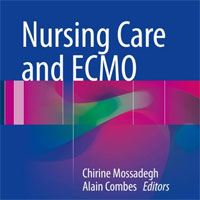
Chlorhexidine bathing significantly more effective in reducing hospital-acquired infections
A Houston Methodist team showed that chlorhexidine bathing of surgical ICU patients decreased the risk of hospital-acquired infections by more than 44 percent.... read more

Communication App Helps Patients Voice Their Needs
An innovative tablet-based application offers intubated and ventilated intensive care unit (ICU) patients a way to converse with their medical staff.... read more

Supporting clinical research with an intensive-care database
Crowdsourcing clinical data from some 40,000 patients could vastly improve research and critical-care decisions.... read more

Is SIRS dead? The new definition of sepsis.
To mark Sepsis Awareness Month in September, Prof Gando, Editor-in-Chief of Journal of Intensive Care, tells us more about the recent sepsis definitions, published earlier this year.... read more

N.J. hospitals work together to reduce sepsis deaths
Anyone can get sepsis. They can get it while perfectly healthy, after having a health issue or while hospitalized for a procedure or test.... read more

Greater collaboration between ICU nurses and ICU physicians may minimize VAP risk
Greater collaboration between ICU nursing and medicine could help to minimize ventilator-associated pneumonia (VAP), according to a study presented at the ATS 2016 International Conference.... read more

Tapping into IV takes pain out of blood draws
The system allows nurses and doctors to draw blood from a patient by accessing his or her existing intravenous medication line, instead of repeatedly sticking the patient with a needle. “I’ve never in my career in medicine... read more

New biomarker test helps detect autoimmune-induced neuropsychiatric disorders
A research team from the University of Oklahoma Health Sciences Center, led by Madeleine Cunningham, Ph.D., in conjunction with the National Institute of Mental Health, has developed the first-of-its-kind biomarker test to... read more

Antibiotics: resist the resistance
European Pharmaceutical Review caught up with Destiny Pharma’s CEO, Dr Love, for an interview about the threat of bacterial resistance to antibiotics...... read more

Community-acquired pneumonia related to intracellular pathogens
Community-acquired pneumonia (CAP) is associated with high rates of morbidity and mortality worldwide; the annual incidence of CAP among adults in Europe has ranged from 1.5 to 1.7 per 1000 population.... read more

Review: Stem Cell Tx for Heart Failure Not Ready Yet
Heterogeneity in methods for trials of stem cell therapies for heart failure are a big reason for the inconsistent results seen to date, a review article suggested.... read more

Elevated HDL levels predict reduced lung function
Having an elevated level of high-density lipoprotein cholesterol (HDL-C) is associated with an increased rate of lung function decline over time, according to results from a cohort analysis of more than 30,000 adults presented... read more

Memory of a heart attack is stored in our genes
Both heredity and environmental factors influence our risk of cardiovascular disease. A new study shows now that the memory of a heart attack can be stored in our genes through epigenetic changes.... read more









